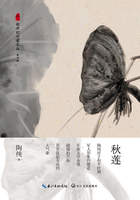[406] C. It is impossible, however, to tell by general reasoning what rights will be held in English law to belong to the former class, or where the line will be drawn between the two. The authorities must be consulted as an arbitrary fact. Although it might sometimes seem that the test of the first was whether the service was of a nature capable of grant, so that if it rested purely in covenant it would not follow the land, /l / yet if this test were accepted, it has already been shown that, apart from tradition, some services which do follow the land could only be matter of covenant. The grant of light and air, a well-established easement, is called a covenant not to build on the servient land to the injury of the light, by Baron Parke. /2/ And although this might be doubted, /3/ it has been seen that at least one well-established easement, that of fencing, cannot be considered as a right granted out of the servient land with any more propriety than a hundred other services which would be only matter of contract if the law allowed them to be annexed to land in like manner. The duty to repair exists only by way of covenant, yet the reasoning of the leading cases is drawn from the law of easement. On the other hand, a covenant by a lessee to build a wall upon the leased premises was held, in Spencer's Case, not to bind assigns unless mentioned; /4/ but Lord Coke says that it would have bound them if it had purported to. The analogy of warranty makes its appearance, and throws a doubt on the fundamental principle of the case. We can only say that the application [407] of the law is limited by custom, and by the rule that new and unusual burdens cannot be imposed on land.
The general object of this Lecture is to discover the theory on which a man is allowed to enjoy a special right when the facts out of which the right arises are not true of him. The transfer of easements presented itself as one case to be explained, and that has now been analyzed, and its influence on the law has been traced. But the principle of such transfers is clearly anomalous, and does not affect the general doctrine of the law. The general doctrine is that which has been seen exemplified in prescription, warranty, and such covenants as followed the analogy mentioned Another illustration which has not yet been is to be found in the law of uses.
In old times a use was a chose in action,--that is, was considered very nearly from the point of view of contract, and it had a similar history to that which has been traced in other cases. At first it was doubted whether proof of such a secret trust ought to be allowed, even as against the heir. /1/ It was allowed, however, in the end, /2/ and then the principle of succession was extended to the assign. But it never went further.
Only those who were privies in estate with the original feoffee to uses, were bound by the use. A disseisor was no more bound by the confidence reposed in his disseisee, than he was entitled to vouch his disseisee's warrantor. In the time of Henry VIII. it was said that "where a use shall be, it is requisite that there be two things, sc. confidence, and privity: ... as I say, if there be not privity or confidence, [4O8] then there can be no use: and hence if the feoffees make a feoffment to one who has notice of the use, now the law will adjudge him seised to the first use, since there is sufficient privity between the first feoffor and him, for if he [i.e. the first feoflor] had warranted he [the last feoffee] should vouch as assign, which proves privity; and he is in in the per by the feoffees; but where one comes into the land in the post, as the lord by escheat or the disseisor, then the use is altered and changed, because privity is wanting." /1/To this day it is said that a trust is annexed in privity to the person and to the estate /2/ (which means to the persona). It is not regarded as issuing out of the land like a rent, so that while a rent binds every one who has the land, no matter how, a disseisor is not bound by the trust. /3/ The case of the lord taking by escheat has been doubted, /4/ and it will be remembered that there is a difference between Bracton and later authors as to whether he comes in as quasi heres or as a stranger.
Then as to the benefit of the use. We are told that the right to sue the subpoena descended indeed to the heir, on the ground of heres eadem persona cum antecessore, but that it was not assets.
/5/ The cestui que use was given power to sell by an early statute. /6/ But with regard to trusts, Lord Coke tells us that in the reign of Queen Elizabeth [409] all the judges in England held that a trust could not be assigned, "because it was a matter in privity between them, and was in the nature of a chose in action." /1/ Uses and trusts were both devisable, however, from an early day, /2/ and now trusts are as alienable as any form of property.
The history of early law everywhere shows that the difficulty of transferring a mere right was greatly felt when the situation of fact from which it sprung could not also be transferred. Analysis shows that the difficulty is real. The fiction which made such a transfer conceivable has now been explained, and its history has been followed until it has been seen to become a general mode of thought. It is now a matter of course that the buyer stands in the shoes of the seller, or, in the language of an old law-book, /3/ that "the assign is in a manner quasi successor to his assignor." Whatever peculiarities of our law rest on that assumption may now be understood.
FOOTNOTES
3/1 E.g. Ine, c. 74; Alfred, c. 42; Ethelred, IV. 4, Section 1.
3/2 Bract., fol. 144, 145; Fleta, I. c. 40, 41; Co. Lit. 126b;Hawkins, P.C., Bk. 2, ch. 23, Section 15.
3/3 Lib. I. c. 2, ad fin.
3 /4 Bract., fol. 144a, "assulto praemeditato."4/1 Fol. 155; cf. 103b.
4/2 Y.B. 6 Ed. IV. 7, pl. 18.
4/3 Ibid., and 21 H. VII. 27, pl. 5.
4/4 D. 47. 9. 9.
7/1 xxi. 28.
7/2 [theta], ix. Jowett's Tr., Bk. IX. p. 437; Bohn's Tr., pp.
378, 379.
7/3 [theta], xv., Jowett, 449; Bohn, 397.
8/1 [iota alpha], xiv., Jowett, 509; Bohn, 495.
8/2 [theta], xii., Jowett, 443, 444; Bohn, 388.














